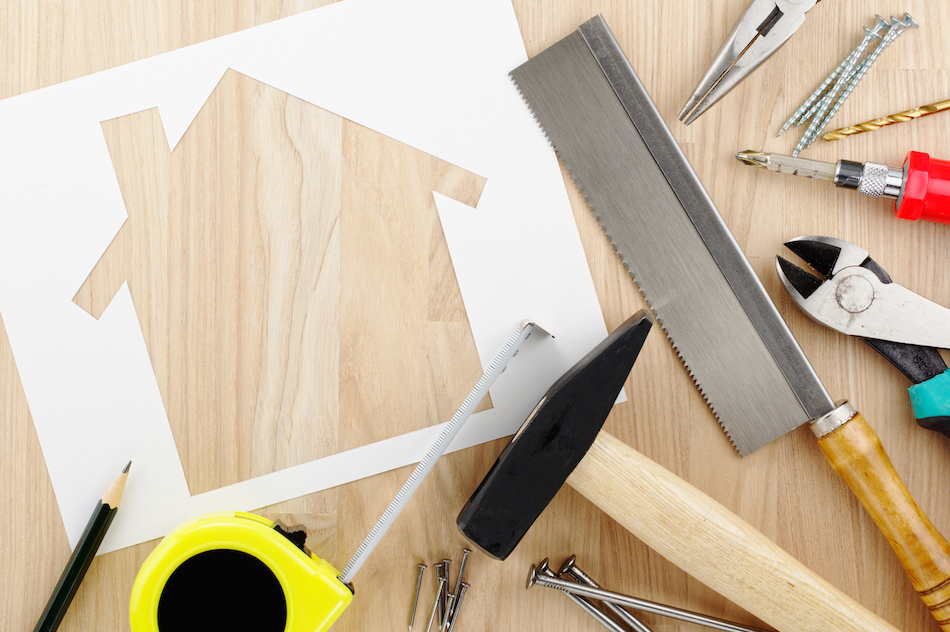Considerations for Purchasing a Fixer Upper Home
Posted by EdmontonRealEstate .ca on Friday, January 18th, 2019 at 12:50pm.
 Buying a fixer upper is a big commitment. Fixer uppers need time, attention, a lot of hard work and a good pool of money for making repairs. If you're a home buyer thinking about purchasing a fixer upper in the next few months, knowing what you're getting yourself into can help you decide if this is the right move for you.
Buying a fixer upper is a big commitment. Fixer uppers need time, attention, a lot of hard work and a good pool of money for making repairs. If you're a home buyer thinking about purchasing a fixer upper in the next few months, knowing what you're getting yourself into can help you decide if this is the right move for you.
Get A Home Inspection
The home inspection is one of the best ways to protect yourself from making a bad investment. During the home inspection, the inspector will investigate the major systems of the house to help the buyer better understand its value.
Usually home inspections turn up problems like outdated appliances, bad electrical work, plumbing leaks and other issues. Being present for the home inspection can help you decide if you can handle the type of repairs that the house will need to be performed. Asking questions like "how would you fix this?" and "is this problem urgent?" can help you assess the type of maintenance the house is going to need, and whether or not you'll be able to meet those needs.
DIY Skills Are Critical
Unless your budget for repairs is unlimited, you can expect to do a lot of repairs on your own. You don't need to have a lot of DIY experience in order to buy a fixer upper, but you will need an adventurous spirit and a willingness to learn. Many homeowners pick up DIY skills to fix up their Central Edmonton home as they go. If you buy a fixer upper property, you'll soon be experienced in art of plumbing, laying in new flooring, repainting, demolition and similar chores.
On a side note, plan to buy a good toolbox if you don't own one already. You're going to need a lot of tools to keep up with the needs of your new property!
Cosmetic Problems Are Preferable
Cosmetic problems are the best problems. You can live for years in a home with an ugly kitchen, but it's hard to live in a house with a leaky roof or a non-functional furnace. When you're searching for properties, keep your eye out for homes with outdated carpeting, ugly wallpaper and a solid structure.
Price Repairs Before Continuing with Purchase
Once the home inspection is complete, meet with contractors to discuss the problems with the house. Solicit bids from various contractors regarding the issues identified by the home inspector. You may decide to make some repairs yourself, but meeting with contractors will help you determine, worst-case-scenario, how much you can expect to pay to repair your house. This can help you set up a budget and can also help you decide if the house that you'd like to buy is a realistic purchase.
Budget For Ongoing Maintenance
They say that you can expect to pay about one percent of the cost of the house in annual maintenance. This may be true of a normal house under normal conditions, but for a newly purchased fixer upper property, this amount can go much higher. Plan to set aside 2–3 percent of the cost of the house to pay for repairs and maintenance, and replenish this amount each year. If you plan to take on major renovations in your first years of ownership, include this in your budget.
What You Need to Know About Getting a Mortgage Loan for a Fixer-Upper Home
Although it can be difficult, it is possible to get a mortgage loan for a fixer upper home. To buy a property in need of repairs with loan funds, you will likely encounter more difficulty finding a mortgage company willing to supply the funds. Because fixer uppers may not yield a return on investment, mortgage companies are hesitant to finance them.
Fortunately, prospective buyers interested in financing a fixer-upper for personal use will have an easier time than buyers who finance a fixer-upper with the intent to flip it and sell for a profit. Because the life of a mortgage loan for a residential personal property is significantly longer than the life of a loan for a flipped property, mortgage brokers stand to make much more money off of a personal loan, and thus, their risk is lessened. People interested in flipping a home may have no choice but to speak with a private lender.
Work With Your Real Estate Professional
Buying a fixer upper may feel like a risky move, especially if you're new to homeownership. Work with your real estate agent to decide whether the house you're thinking about buying is right for your needs. If the contract is not yet finalized, your real estate agent may be able to negotiate repairs from the seller to make the first months of homeownership more manageable.

